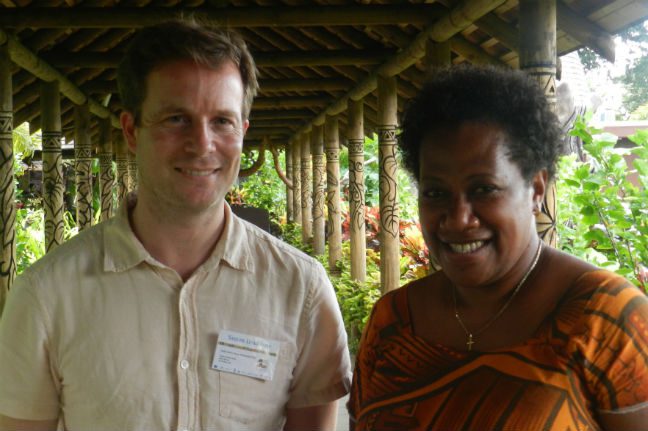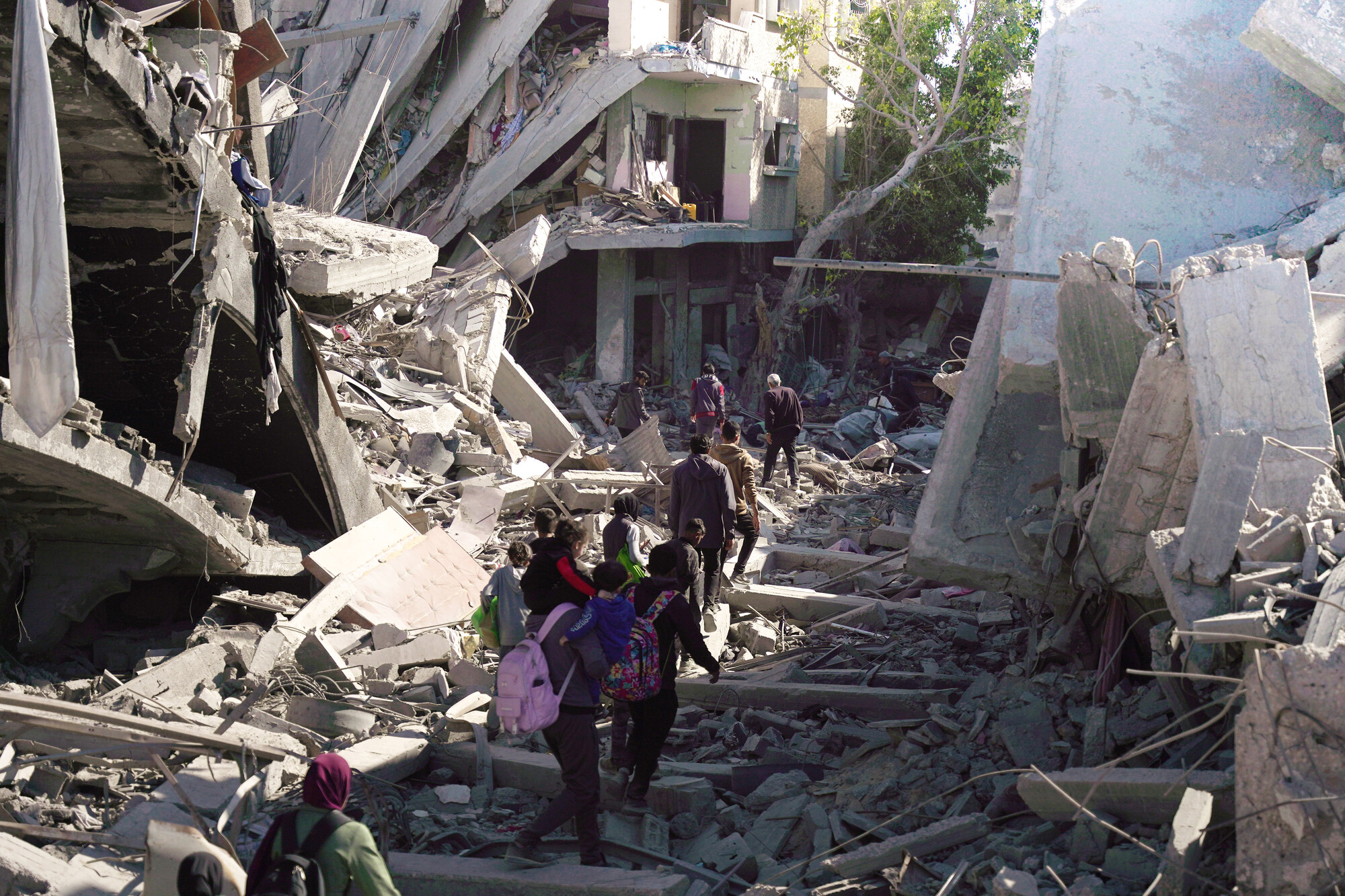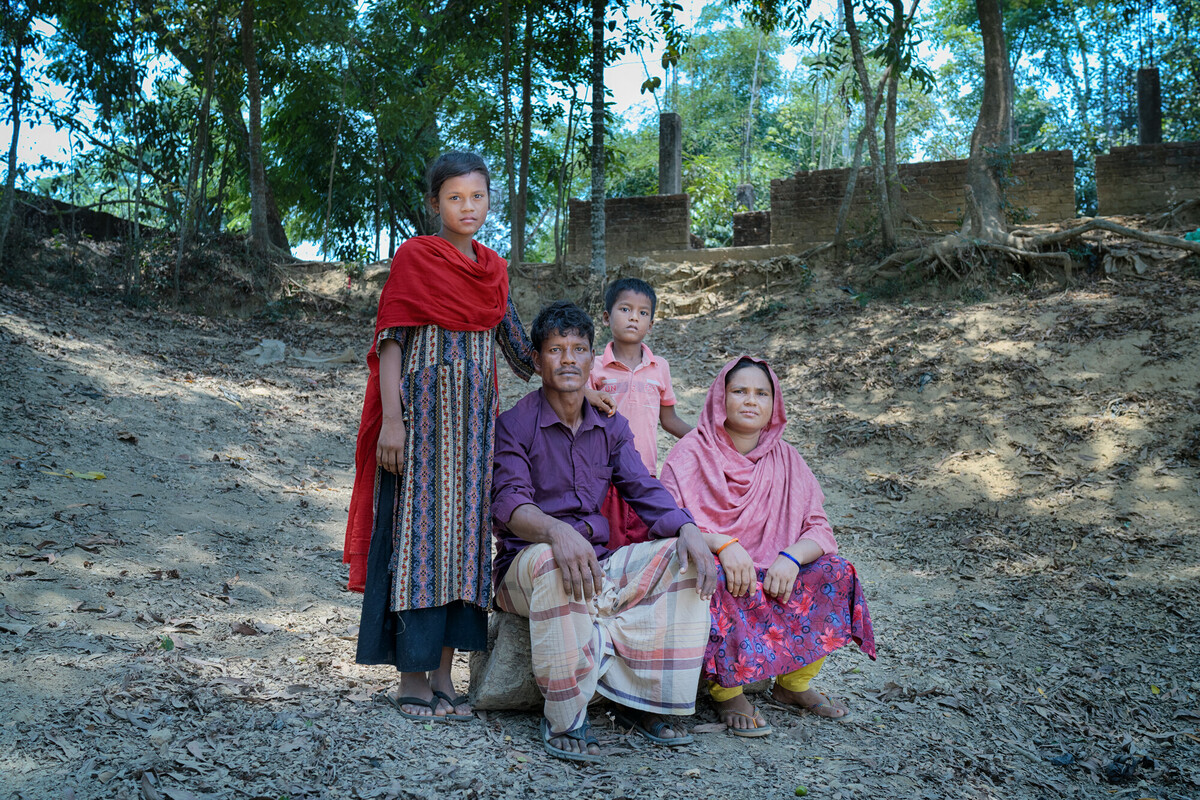By Dr Simon Bradshaw, Climate Change Advocacy Coordinator, Oxfam Australia
Just two months ago Vanuatu took a direct hit from Cyclone Pam — one of the strongest cyclones ever recorded in the South Pacific. You have seen the images, read the stories, and are no doubt following Vanuatu’s determined efforts to rebuild and recover. But there is another story waiting to be told.
Since 2012 a group of local and international NGOs, including Oxfam, has been working alongside the Vanuatu government to help build the resilience of Vanuatu’s communities in the face of climate change and increasing disaster risks. This innovative program broke new ground in terms of collaboration across government, communities and NGOs. It has also made important advances in understanding and reinforcing the factors that underpin a community’s resilience, and its ability to cope with change and uncertainty.
While it will take many more months to fully understand the impact of the work that was implemented in the years prior to Cyclone Pam — and most importantly — how we should carry out this important work in the future —a number of things are already clear.
Despite Cyclone Pam’s extreme ferocity, the death toll was mercifully low. More than anything, we have seen just how important Vanuatu’s rich store of indigenous knowledge and traditional coping strategies are. Our program has worked to build on Vanuatu’s existing strengths, and we are more confident than ever that this is the right approach.
we have seen just how important Vanuatu’s rich store of indigenous knowledge and traditional coping strategies are.
We have seen the impact of the enhanced coordination and cooperation between government and NGOs, and the tremendous difference this has made during the recovery.
This week, Oxfam’s Shirley Laban and I are in Samoa at the Pacific Climate Change Roundtable – an important gathering of government officials, scientists and development agencies from across the Pacific.
The main research was conducted in mid 2014 by Pacific expert Nic Maclellan, and has been updated with new insights following the cyclone. It has inputs from our partners in Vanuatu including CARE, Red Cross, Save the Children, SPC/GIZ and the Vanuatu Rural Development Training Centres Association.
In this critical year for international action on climate change, Shirley and her colleagues are also working hard to help amplify the Pacific’s voice on climate change. They are helping to grow the Pacific Island Climate Action Network — a network that links organisations from across the Pacific in working together for climate justice.
We’ll have more news from Samoa soon.
LISTEN
to Dr Simon Bradshaw explain how Vanuatu’s wealth of traditional knowledge reduced cyclone damage.
SHARE
the #LessonsFromVanuatu
- Vanuatu’s traditional knowledge about disaster preparation & recovery reduced #cyclonepam damage #lessonsfromvanuatu
- #Climate adaptation work by govt, communities & NGOs helped Vanuatu prepare for #cyclonepam #lessonsfromvanuatu
- Climate change is exacerbating disaster risks in Vanuatu, impacting infrastructure & agriculture #lessonsfromvanuatu
- Vanuatu is ranked 131 on UN Development Index. #Climatechange will add to development challenges #lessonsfromvanuatu
- World Risk Report: Vanuatu is the most at-risk country based on vulnerability to climate hazards #lessonsfromvanuatu



